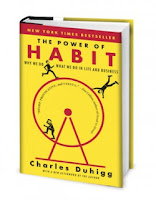Occasionally, I’m asked, “What would you do if you were me?” The probability that you have faced the same question is very likely. It’s a tough spot in which to find yourself! Undoubtedly, if you know the person’s circumstances and have had a similar experience, you’re comfortable giving advice. If you feel some hesitation, though, you would probably reconsider the facts and weigh several options in order to decide on the best advice.
The unknown piece is you
can’t predict the person’s response to your advice because you are not the
person asking the question. Everyone
reacts differently to advice from others so I am cautious as to whether they are
sincerely looking for advice from me or seeking validation for a plan they have
already thought through.
Different situations require
different considerations. Simple
situations can be satisfied with easy-to-give advice. Extreme questions require extreme
considerations and planning. If my
friend was asking for the best apple pie recipe, that’s easy. However, if my friend was asking how much to
save for his retirement, that requires more thought and planning.
Here’s the dilemma when
extreme questions are about money.
Extreme questions require you to expose yourself. One client said, “I feel like I am standing here naked,” as she handed me their
investment portfolio, credit card statements, bank statements, and tax
returns. No doubt it’s a daunting
experience to reveal what you’ve done with your life’s earnings. Definitely you saved as well as squandered a
share of your income. You may even feel
like you could have done a better job if you’d tried harder. A financial planner can be compared to a
doctor. We diagnose potential problems
when you are willing to expose yourself.
We examine any symptoms and treat any ailments with plausible remedies
to make the “boo-boo” go away. Many people are reluctant to go for their
annual health check-up. They also
experience the same reluctance to make an appointment with a financial
planner. Much like an x-ray reveals
broken bones, a financial plan can help diagnose broken parts in need of repair
and ensure you are on the right track.
The decision you must make is whether to work with CERTIFIED FINANCIAL PLANNER® professional or fly solo. Equipping yourself with financial information is the secret to a successful outcome. Financial Literacy Month and Financial Planning Week were launched for the same reason I publish my blog posts, to create awareness concerning “your financial health”. We can’t do everything perfectly right. I can honestly say I squander my share of money on things that are not always beneficial. However, I believe we can all be coaxed into striking a balance between our spending and saving habits. Maintaining great financial health is an impressive habit to develop, something which was discussed in my last blog.
With masses of information
available on the Internet, here are three specific websites to gain access to
various topics, such as dealing with life’s challenges, starting your first
job, and how to open a bank account.
Pick a topic of special interest to your particular circumstances and
get smarter about money.
To end on a different note, I’d like to share this story that I use in my “Money Matters” presentation.
There
was only one problem. The captain’s parrot saw the shows every week and began
to understand what the magician did in every trick. Once he understood, he started shouting in
the middle of the show.
“Look, it’s not the same hat!”
“Look, he’s hiding the flowers under
the table!”
“Hey, why are all the cards the Ace
of Spades?”
One
day the ship had an accident and sank.
The magician found himself on a piece of wood, in the middle of the
ocean, and of course, the parrot was by his side.
They
stared at each other with hate, but did not utter a word. This went on for several days.
After
a week the parrot finally said, “Okay, I
give up. What’d you do with the boat?”
Like the parrot who wondered
what the magician did with the boat, we, too, may be wondering at the end of
our working careers, “What did we do with
the money?”
I’m asking, “What would you do”
…with an inheritance
…to prepare for retirement
…when you face a critical illness
…if you lost your job
…to ensure you are on the right track
financially
…to save for your children’s education
Extreme questions may
require you to “get naked”? So, what will you do?








